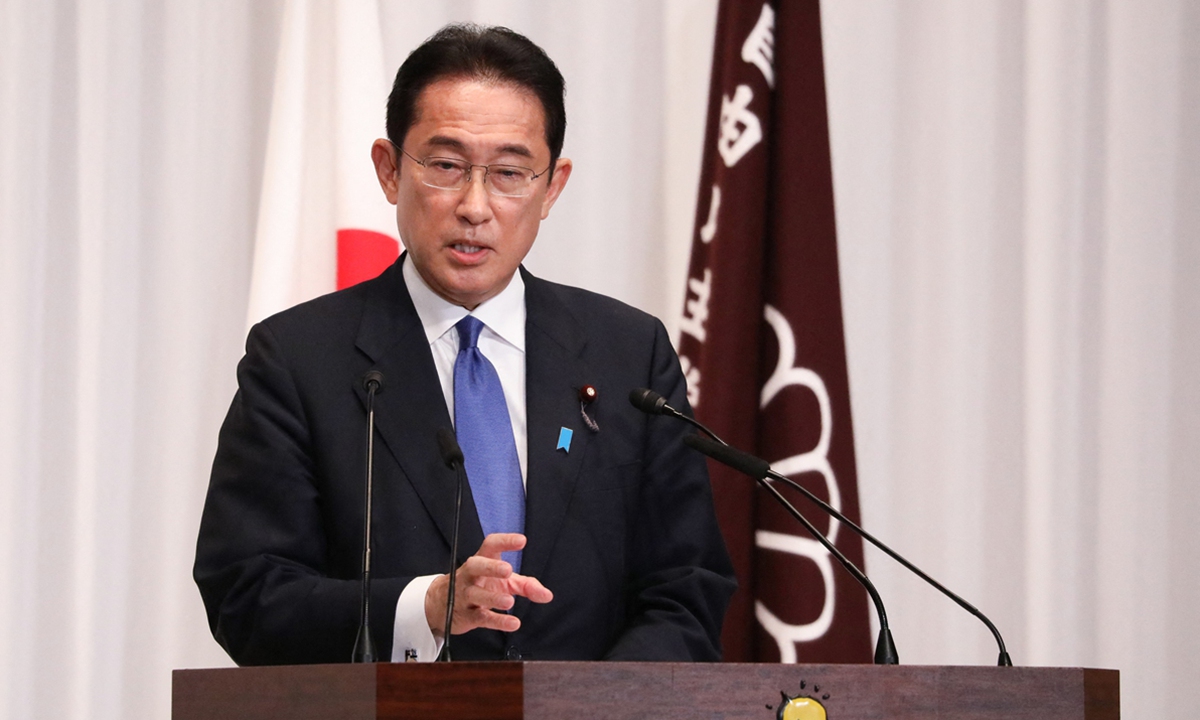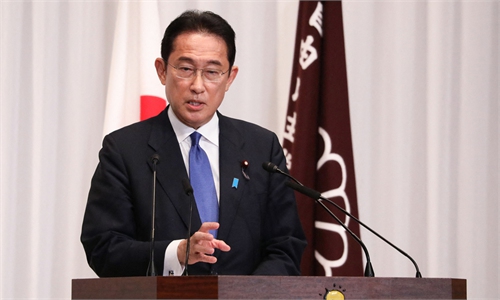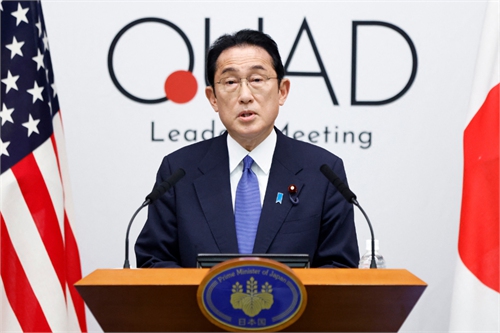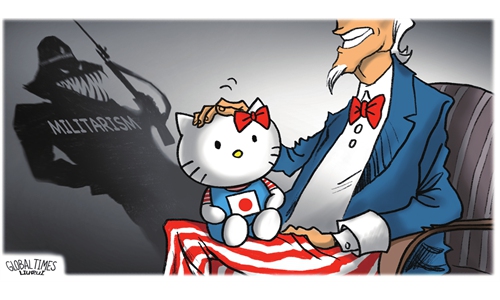Tokyo needs to strategically sober up as soon as possible: Global Times editorial

Fumio Kishida Photo: AFP
Japanese Prime Minister Fumio Kishida kicked off a tour of five of the G7 countries on Monday. France is his first stop, followed by Italy, the UK and Canada, and the final stop is the US, where Kishida will "report" to US President Joe Biden and consult on strengthening Japan-US alliance and the G7 Summit agenda of this year.However, when the visit just commenced, or even before Kishida set out, a pungent smell had already emanated. As the Chinese saying goes, "If you taste a piece of meat, you can figure out the taste of all meat in the pot." Considering Kishida's briefing to reporters before his departure at midnight, his various statements after he arrived in Paris, as well as Tokyo's related words and deeds recently, many Western media have summed up one major topic of Kishida's trip: coordinating their effort to counter the (so-called) China threat. To put it bluntly, it is to engage in "anti-China tandem" with the G7 members, which sets a poor start for international relations in 2023.
There is no problem for Japan, holding rotating presidency of the G7, to visit countries before the summit, understanding of their demands, communicating with them, and finalizing some core issues. However, in bilateral meetings between Japan and other G7 members, it is unnecessary and dangerous to display a hard-line attitude toward China, tout the "regional threat theory," and even attempt to conduct an "anti-China tandem." If this is the main direction of Japanese diplomacy in 2023, it will be a terrible mistake.
In Paris, Kishida implicitly criticized China for "unilateral attempts to change by force the status quo in the East and South China Sea intensify and the security environment becomes increasingly tense." He seems to be seeking to divert as much attention of the bloc's European members from the Russia-Ukraine conflict to East Asia. During his trip, Kishida will seek to further strengthen bilateral military ties with five other countries, Japanese officials say. An editorial published by the Global Times in May of 2022 warned that "Japan shouldn't be a promoter for NATO's Asia-Pacific expansion." But it is a pity that Kishida is still making paranoid efforts in this wrong and risky direction.
Japan is the rotating presidency of the G7 this year, and it will host the G7 Summit in May. This is seen by Tokyo as an important opportunity to enhance its big-power status and influence. To a large extent, Kishida's visit is also to prepare for the G7 summit. However, as the only Asian member of the G7 club of rich countries, Japan does not serve as a spokesperson for Asian interests in the G7, nor does it serve as a bridge to strengthen mutually beneficial cooperation between Asia, Europe and the US. Instead, it has played a very negative role in trying to bring in external forces that impact regional peace and stability in Asia. From the current signs, it can be basically judged that the G7 summit hosted by Japan will inject a negative energy countercurrent into the Asia-Pacific. It is absolutely impossible for Japan to improve its national status and international image in this way.
It is worth noting that among the G7 members, Japan's anti-China initiative has become increasingly prominent and is no longer a mere strategic vassal of Washington. Japan positions China as "the greatest strategic challenge" and often rushes ahead of Washington to actively coordinate the G7 and other organizations' positions on China. Under the cover of exaggerating the "China threat theory," Japan's actions of breaking through the "pacifist constitution" and developing its military power on a large scale are even more worrying. These actions are incompatible with the general atmosphere of commitment to economic development, stability and prosperity in the Asia-Pacific region and run counter to the international community's expectations for peace and harmony.
Japanese media have high expectations for Japan's diplomacy in 2023 and believe that "Japan's efforts in diplomacy must be redoubled in 2023" in order to improve its status in the international community. But if the direction is wrong, the more it "works hard," the farther it will be from the goal. It is obvious that Japan is going the wrong way again. But Tokyo is lost, while Washington pretends not to see it, and at the same time, Tokyo did not heed the reminding of others. Japan's strategic perception is soaked in the so-called "China threat" vat, and its strategic behavior is becoming more and more like that of a chronic alcoholic who is delirious, narrow-minded, and aggressive, lacking a sense of balance. This reminds us of the last time Japan took a wrong turn and brought a terrible disaster to Asia.
To make Tokyo become strategically sober as soon as possible is a serious problem that both the Japanese society and the Asia-Pacific region need to face and find ways to solve. The current political ecology, public opinion and social thinking in Japan are all showing disturbing signs. If these signs are not extinguished as soon as possible, there is a high risk that a fire will break out, and even Washington will not be able to stay out of it.



